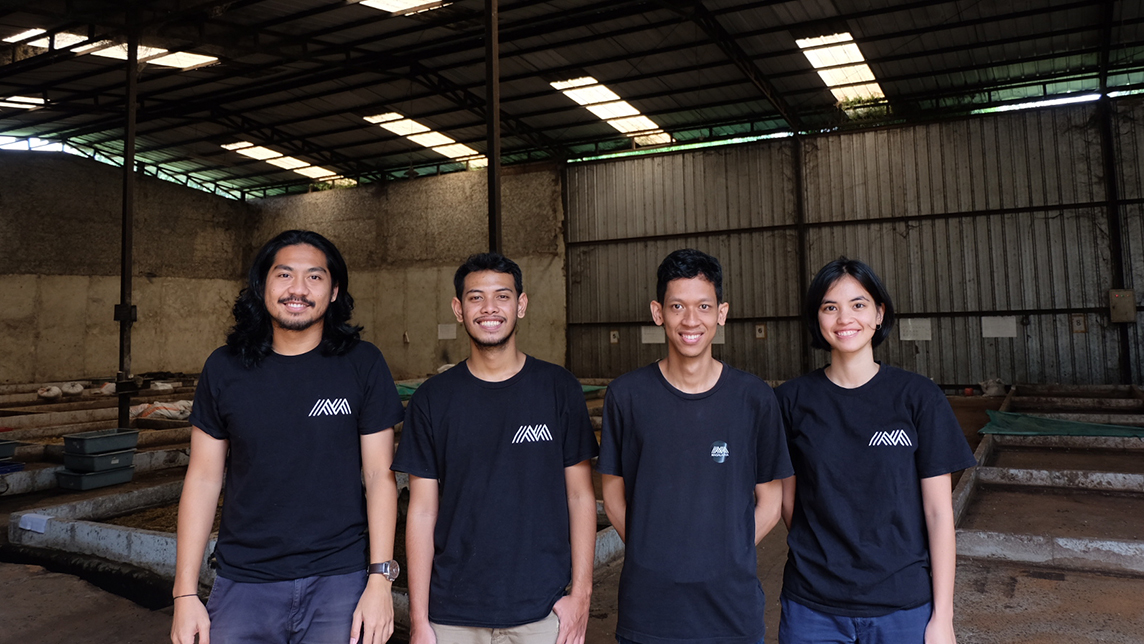Juan Cañamero Lluna began breeding insects as a hobby in 2000. That grew into a small business to provide reptile food. Nearly two decades on, he has co-founded Feedect, a startup breeding insects to create protein products for animal feed, flour, fertilizers and nutritional lipids.
As early as 2009, the Food and Agriculture Organization (FAO) of the United Nations had begun thinking about the challenges of feeding a future population of 9bn humans. Projections showed that food production had to rise by 70%. In the case of meat, the FAO predicted that annual worldwide production would need to rise by more than 200m tons to 470m tons. Thus began the search for additional, alternative protein sources that could be sourced sustainably and securely.
Realizing how insects could offer an alternative protein source that is both cheaper and better for the environment, Cañamero decided to embark on a bigger venture, co-founding Feedect in January 2018 with Julio Just and Olallo Villoldo, both industrial engineers in national and international renewable energy project management. Cañamero is the CPO and CTO Bruno Fasce Clemente is a chemical engineer in charge of R&D.
“It is possible to obtain quality protein and oils from insects, for both animal and human consumption," Just, Feedect's CEO, told CompassList at the recent Smart Agrifood Summit. "What makes it an interesting alternative is that organic waste and food by-products can be used to feed the insects, thus contributing to a circular economy. In the same sense, insect waste can be used as a natural fertilizer.
The global industry for edible insects will grow to US$7.95bn in sales from US$1bn this year, forecasts ResearchandMarkets. Currently, the most advanced European companies in this sector are based in Holland and France. French startup Ynsect recently raised US$125m. In the EU, processed insect protein regulations for animal and human consumption have been in force since January 1, 2018.
Start with human food
“The potential of the sector is palpable," said Villoldo, the company's CSO. "We compare it with renewable energy. For example, we know that the development of the solar energy sector initially needed significant support. But now it's the most price-competitive energy.
"In the case of processed insect protein, everything makes sense from an environmental point of view. The job now is to make the process competitive in terms of pricing. Once we achieve that, it will be a great business."
Feedect's long-term goal is to be an insect protein supplier for animal feed producers. However, it would need to move large volumes in order for it to compete against soy or fishmeal suppliers. Therefore, before reaching these volumes, and provided the required quality is met, the company's strategy is to tap the human food market first, since it involves the same production process.
And so, Feedect is collaborating with an insect-protein products-for-humans company in R&D.
“It's one thing to produce thousands of tons of processed insect protein for animal feed, and another to produce a few hundred kilos for a specific human food brand that wants to launch a line of products containing 5% insect protein," Villoldo said.
"Insect meals are richer in amino acids and proteins than the usual animal feed of soybean meal, and quite similar to fishmeal from a nutritional point of view," said Just. “Right now, we sell unprocessed live food for animal feed (mainly birds and reptiles) as we are still developing our project. However, through the Polytechnic University of Valencia, we have produced our first processed insect protein (or insect meal) on a laboratory scale."
In the case of human food, the proposition is integrated by-products with a relatively small percentage of processed insect protein. "People do not reject these types of products outright, as we initially expected," said Villoldo. "That is why we see human food as a small intermediate step."
Production, pricing challenges
Producing large-scale live insects has been a great challenge for Valencia-based Feedect. Despite its experience in insect breeding, the company has had to face problems with resources, facilities, and logistics. The production process is currently focused on temperature and humidity control and breeding-unit aeration. Feedect is also beginning to introduce machinery to clean and process the insects in order to further industrialize the process.
“To maximize production in a given space, vertical farming is used to breed the insects," Just said. "This kind of farming produces many more kilos per square meter than traditional livestock."
“The farms really look more like logistics warehouses," Villoldo added.
Help from accelerators has been invaluable. Just said: “At the end of 2018, we entered the Lanzadera accelerator and in April 2019 we were selected by EIT Climate-KIC Spain for stage 1."
On the other hand, the biological part of the process is extremely agile. Learning times are quick as an insect lives about a month. This means that a year of research in pigs, for example, is equivalent to one or two months in the case of insects.
Seeking seed funding
The next step would be the ability to produce the daily tonnage demand required by large animal feed producers. Closing million-dollar financing rounds will be crucial to set up the required facilities. For that, the right technology and a business model must be in place.
"We have the idea of formalizing a pre-seed or seed round of €200,000 to €300,000" in the third quarter of 2019, Villoldo said.
Feedect started with an investment of between €30,000 and €40,000, equivalent to its current annual revenue from the sale of unprocessed insects for bird shelters and animal stores. Although a symbolic figure, it is income and serves the company as a resource to solve many scale-production problems.
"We expect to double or triple our revenue once we get a little investment to help us finish developing our products," Just said.












